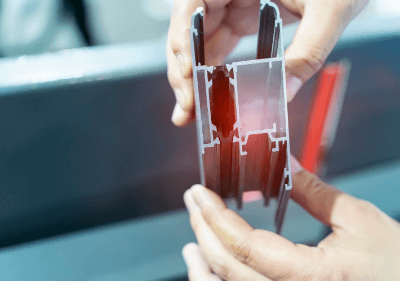What Is a Resin Screw Spacer?
 A resin screw spacer is a material used to fill a gap that occurs between two objects.
A resin screw spacer is a material used to fill a gap that occurs between two objects.
Among these, a spacer made of resin is called a resin screw spacer.
Uses of Resin Screw Spacers
Resin screw spacers are often used in the field of electronic materials when overlapping boards, materials, or circuits that are not to be conduited. They are characterized by high mechanical strength, chemical resistance, and electrical insulation.
Resin screw spacers are also used in a variety of situations in companies that manufacture electronic materials and in research institutions such as universities. It is no exaggeration to say that the construction of most electronic devices would be impossible without the use of resin screw spacers.
Resin screw spacers are also used in the construction industry as spacers when pouring concrete. By utilizing the elasticity and non-adhesiveness of resin, cracks that occur when concrete hardens and adhesion with other materials can be prevented.
Principle of Resin Screw Spacers
Resin screw spacers are used when fixing some parts with screws, etc., in order to make space between parts, or to fill a space to prevent distortion of some materials. Resin materials vary in mechanical strength, abrasion resistance, hardness, and chemical resistance, with a wide variety of performance and price.
In addition, many resins are not conductive, so resin screw spacers excel in applications where electrical insulation is desired.
Types of Resin Screw Spacers
Resin screw spacers are available in a wide variety of materials. Typical types are as follows:
1. Polyacetal
Polyacetal is one of the most common resin screw spacer materials, and is available in a wide variety of colors, including milky white, black, and blue. It is also used for insulation retention in printed circuit boards, etc., and has excellent mechanical strength and chemical resistance.
It tends to be relatively inexpensive and has high stability as a material, making it one of the most widely used materials in various industries. However, heat resistance tends to be low.
2. Nylon
This resin is available in a wide range of colors, including white, black, and blue, and has relatively high heat resistance. While its mechanical strength, such as toughness, is very high, its surface hardness tends to be low.
In addition, water absorption is relatively high. Although its price is higher than that of general-purpose resins, its characteristics can be used in a variety of situations.
3. Bake
Available in orange, brown or black, this material is made from phenol. It has excellent insulating and heat resistance properties, and is a mainstay resin screw spacer in applications ranging from power plants to home use.
It is relatively inexpensive, and while it has a high surface hardness, it is also easily scratched.
4. Fluoroplastic
Fluoropolymers are available in white, translucent, black, and other colors, and in addition to their insulating properties, they have excellent chemical resistance. Unlike most resins, PEEK has low polarity, which means that it has very low adhesion to other materials and a very low coefficient of friction on its surface.
In addition, because of its very high performance, it is also very expensive. Since the cost is not worth it in most cases if it is used in general purpose, this material is often used only in areas where only fluoropolymers can be used.
5. Glass Epoxy
This material is epoxy resin reinforced with glass cloth, and is mainly used in the electronic materials field. It is an organic-inorganic composite material that utilizes the strength of glass because epoxy alone cannot satisfy the mechanical strength requirements. Since this technology has been established for a long time, it is mass-produced and inexpensive, and most electronic substrates are manufactured using glass epoxy.
Because of the glass reinforcement, powerful machines are required for cutting, drilling, and other processing, so it is essential to procure other processing tools if you plan to do a lot of processing.
There is also a wide variety of other materials, such as polycarbonate, polyurethane, polyphenylene sulfide, silicone resin, etc., and sometimes two or more materials are mixed together. Resin screw spacers are used in a wide variety of applications, not only in areas where insulation is required but also in areas where the properties of the material can be demonstrated.